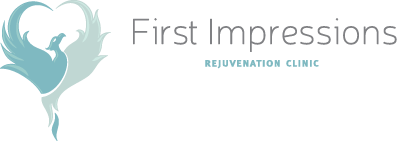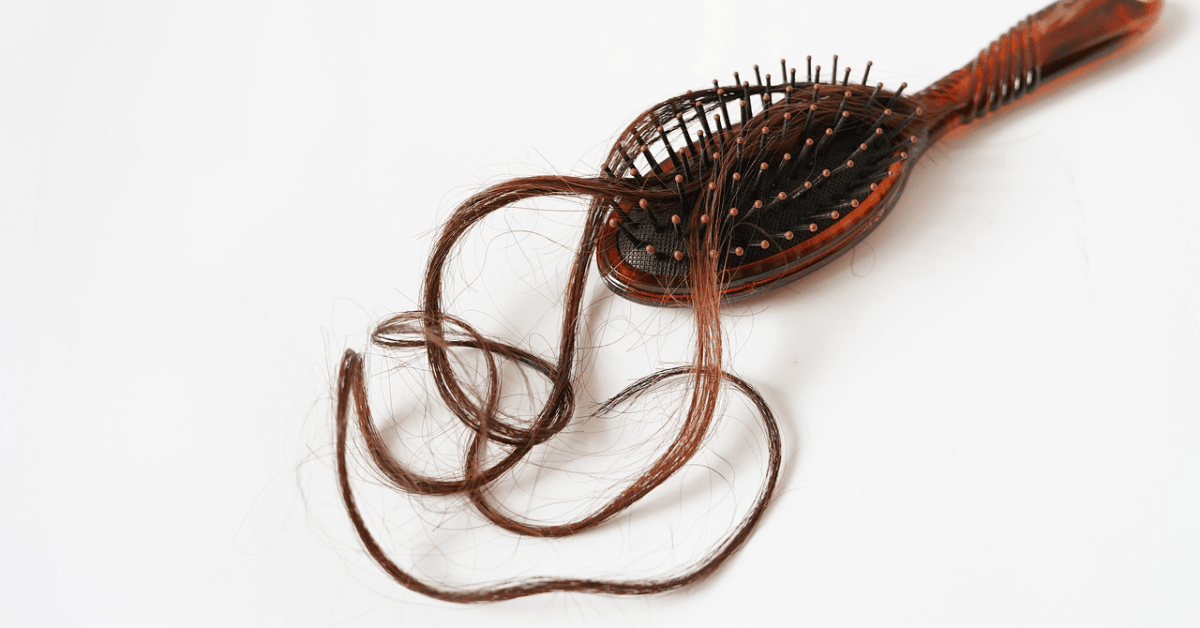Hair loss may start with a strand or two stuck to your sweater and a few stray pieces that come out during the shower, but when you start noticing your hair thinning or even bald patches starting to form, it may be time to determine the culprit and find a solution. Genetics, hormones, tension on the hair, trauma, stress, age, and certain medical conditions all contribute to hair loss. However, there may also be an underlying cause you have not previously considered – Your diet may cause hair loss! Too much or too little of certain nutrients can impact your hair health.
The hair is made up of the hair shaft, which is what you can see, and the hair follicle which is buried under the skin. Hair grows from the hair follicle at about 0.35mm per day. You can lose up to 100 hairs each day through washing and brushing your hair.
Which Vitamin Deficiency Causes Hair Loss?
Protein is essential for growing thick and healthy hair. When your body does not get enough protein, your nails may become brittle, your muscles may shrink, and yes, your hair can start falling out. Foods such as lean meats, eggs, yogurt, peanut butter, and nuts are full of protein. Eggs are also a great source of biotin, which promotes hair growth. Even if you participate in a vegetarian or vegan lifestyle, be sure to get enough protein each day. Don’t forget, your hair also requires amino acids, which are the building blocks of protein.
Iron is not just for strong and healthy bones. Mineral deficiency is attributed as one of women’s hair loss causes, and iron deficiency is one of the most common in the world. Low levels of iron can cause anemia, which can lead to hair loss. In fact, it can completely disrupt your hair’s regrowth cycle, stunting new growth and leading to excessive hair shedding. To amp up your iron, look to spinach. The leafy green is an excellent source of iron and sebum, a natural conditioner for hair. Beef, poultry, and lentils also have a significant amount of iron.
If you suffer from hair loss all over the scalp, a zinc deficiency may be to blame. Zinc promotes hair follicle function and protects against follicle shrinkage and stunted growth. Poultry, beans, nuts, red meat, and oysters are all good sources of zinc. A lack of zinc may cause a common and highly treatable form of hair loss called telogen effluvium.
Vitamin D also plays a critical role in your hair health. A vitamin D deficiency is common in the colder months when sunlight is less prevalent. Fatty fish, milk, and fortified cereals contain plenty of Vitamin D to combat deficiencies.
Deficiencies in copper, vitamin B 12, vitamin C, folate, and riboflavin may all contribute to hair loss.
Too Many Nutrients
It is also possible to consume too many specific nutrients and that can be considered one of the many causes of hair loss for women. That’s right, you really can have too much of a good thing.
Vitamin A is a fat-soluble vitamin necessary for organ function and eyesight. Women who feel they have a vitamin A deficiency may turn to supplements. However, too much Vitamin A in the body can cause vitamin A toxicity and cause hair loss as well as dry, rough skin, and an increased risk for bone fractures. Yikes! Sweet potatoes are a great source of Vitamin A. While you probably do not have to amend your diet too much, you should talk to your practitioner before taking a Vitamin A supplement.
Saturated fats can not only increase your cholesterol levels but can also contribute to hair loss. Saturated fats are converted into androgens (hormones like testosterone) and into sebum. Too much sebum can cause oily hair and clog hair follicles, thus stunting hair growth. You can find saturated fats in red meat, milk, cheese, fast food, and most processed foods.
Selenium is a trace element required for many cell and body processes. However, consuming too much selenium can cause hair loss. High-selenium foods include Brazil nuts, organ meats, and certain seafood. Like Vitamin A, most cases of selenium toxicity occur in people who have consumed selenium supplements.
Too much mercury is never a good thing. While fish provide us with omega-3 fatty acids, folate, and a host of other vitamins, be careful with your consumption. Mercury-rich fish has been tied to women’s hair loss causes as well. Enjoy 2-3 servings of fresh, low-in-mercury fish such as tuna, salmon, and cod.
Sugar is sweet and in just about everything. We all know too much sugar is bad for our overall health, but how is it related to women’s hair loss causes? To manage the sugar in your body, insulin is released. The insulin breaks down the sugar. High insulin levels decrease the amount of certain hormones like SHBG, the sex hormone-binding globulin. Basically, too much sugar means excess insulin and the body’s systems go awry.
Stress, Diet, and Hair Loss
It is worth mentioning that stress can contribute to hair loss as well. Oftentimes, stress and diet are closely related. You may binge eat the wrong types of foods or abstain from eating and deny yourself essential nutrients and minerals.
Three medical conditions are directly related to high stress and hair loss. The first is called telogen effluvium. The main symptom is a sudden onset of increased shedding of your hair. After experiencing chronic stress or a traumatic event, your hair follicles can be pushed into the resting phase. New hair growth becomes stunted and existing hair begins to shed more quickly. You may notice the thinning of hair around the scalp. In many cases, this condition is temporary, and hair begins to regrow after the stress has subsided.
The second condition is trichotillomania. People who have this condition literally tear their hair out to cope with anxiety, depression, nervousness, or stressful situations. Affected areas include hair on the scalp, facial hair, and body hair. Like telogen effluvium, this hair loss stress condition is temporary and resolves itself with treatment of emotional symptoms.
The third hair loss condition is alopecia areata, which occurs when the body’s immune system attacks your hair follicles and causes hair to fall out. In some cases, alopecia areata may only cause the hair to thin. However, it is common for sufferers to develop bald spots around the head.
Women’s Hair Loss Treatment
Now you know what types of food to enjoy and avoid if you are experiencing hair loss. But what about treating the problem in addition to fortifying your diet with proper nutrients? There are several treatment options available to help you reach your hair restoration goals.
You can increase hair growth and thickness with your own blood. It sounds kind of spooky, but platelet-rich plasma injection for hair growth treatment is proven, safe, and effective. PRP regenerates the dermal papilla cells located in your scalp tissue while stimulating blood vessel growth in your skin. Ultimately, PRP for hair loss will trigger natural hair growth. The PRP will also increase blood supply to the hair follicles and boost the thickness of the hair shaft.
The first thing you will notice after treatment is a reduction of shedding. That means less hair stuck to your clothes or inside the bathtub, thanks to PRP. As the treatment works and your natural hair growth cycle occurs, you will gradually experience fuller hair and less noticeable baldness patterns on the scalp and crown of the head. Remember, consistency is essential for maximum results. You will probably need to undergo multiple treatments as well as occasional maintenance treatments to continue to stimulate new hair growth. Even though PRP is a successful treatment option, it is not a completely permanent solution for hair loss. The result is a natural regrowth of hair with increased thickness.
Don’t Let Hair Loss Bring You Down
Curious about the correlation between diet and women’s hair loss causes? Want to explore treatment options to restore your beautiful head with thick, strong hair? Consider booking a consultation at First Impressions Rejuvenation Clinic. Our practitioners would be happy to answer any questions you may have as well as recommend treatment options that best fit your needs.
Remember a healthy diet impacts every facet of your body from your hair to your toes! It is all about making sure you consume well-balanced meals and are aware of what foods may trigger hair loss.
***************
If it’s been years since you’ve experienced a passionate love life, it’s time to turn your fantasies into reality and bring back those nights of romance. Discover the truth about regaining a healthy sexual relationshiop in just one painless treatment. Learn more when you download our FREE ebook, Bring It Out of the Bedroom: Give Your Love Life the Boost You Both Deserve with Save, Proven Treatments for Sexual Rejuvenation.

